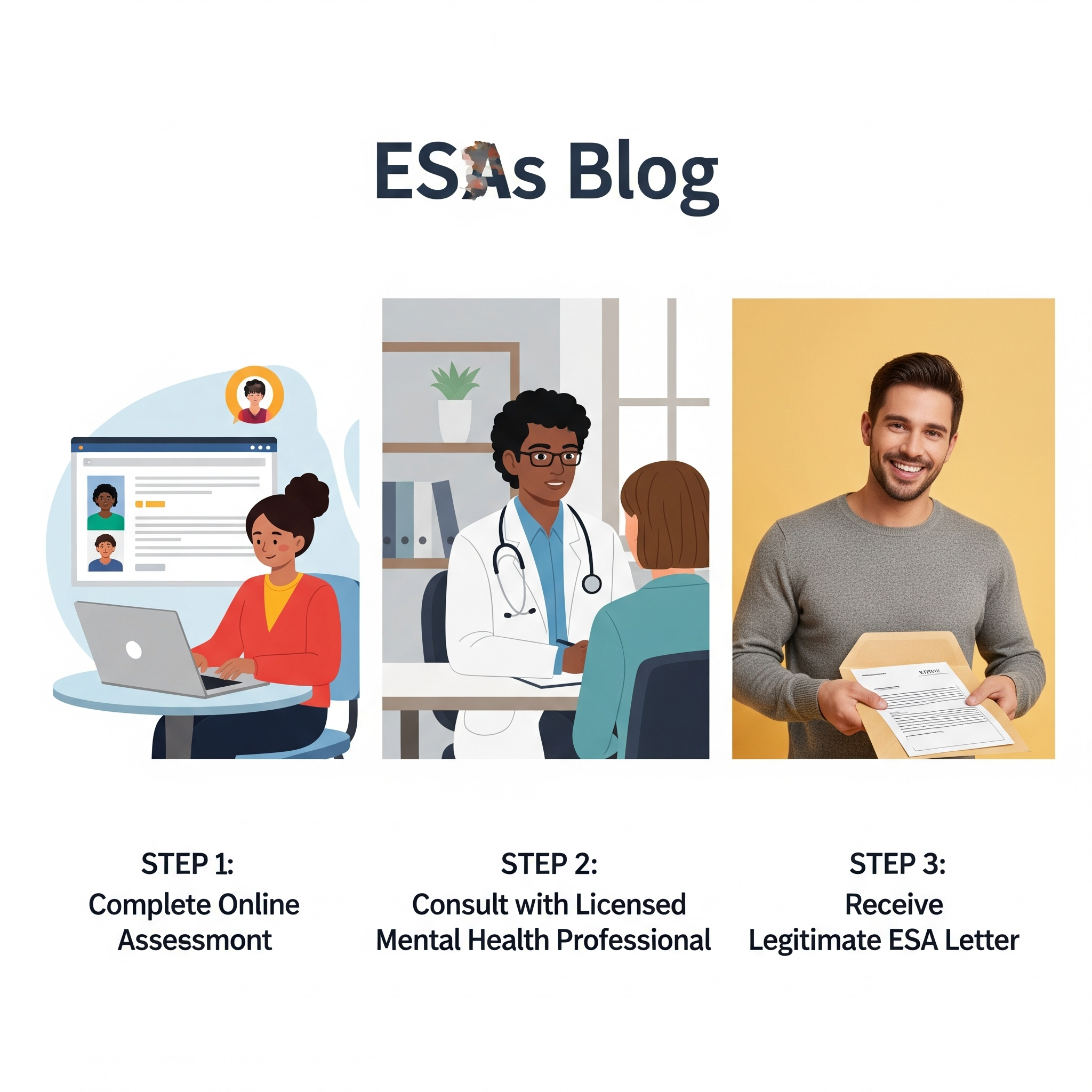Living alone can be a deeply enriching experience, offering unparalleled freedom and a chance to truly discover yourself. But let’s be honest, it can also come with its fair share of challenges. The quiet can sometimes feel too quiet, the independence can occasionally morph into isolation, and the weight of sole responsibility can be heavy. For many, navigating these waters is made infinitely easier, and more joyful, by the presence of a beloved companion: an Emotional Support Animal (ESA).
I’ve been living alone with my ESA, a scruffy terrier mix named Charlie, for the past three years, and it’s no exaggeration to say he’s transformed my world. This isn’t just about having a pet; it’s about a recognized partnership that offers profound emotional and practical benefits, creating a more stable, supportive, and frankly, happier home environment.
The Emotional Lifeline: More Than Just a Pet
The emotional support an ESA provides is often the most immediate and impactful benefit. For those living alone, especially individuals managing mental health conditions like anxiety, depression, PTSD, or even just general feelings of loneliness, an ESA acts as a constant, non-judgmental source of comfort and affection.
Combating Loneliness and Fostering Connection: The most obvious emotional benefit is the sheer antidote to loneliness. Stepping through your front door after a long day to be greeted by enthusiastic tail wags or a soft purr immediately shifts the atmosphere from empty to welcoming. This daily ritual, however small, is a powerful reminder that you’re not truly alone. Charlie is my constant shadow, whether I’m working, reading, or just lounging on the couch. His presence fills the silence, and his gentle nudges for attention remind me that I’m cherished. This unwavering companionship creates a profound sense of connection that significantly mitigates feelings of isolation.
Reducing Anxiety and Stress: ESAs are masters of calm. Their very presence can have a remarkably soothing effect. When anxiety starts to bubble, the simple act of stroking Charlie’s soft fur, feeling his warmth beside me, or listening to his gentle snores, acts as a powerful grounding mechanism. The rhythmic motion of petting can lower heart rate and blood pressure, naturally reducing feelings of stress. For me, Charlie often senses when I’m feeling overwhelmed, offering a comforting head on my lap or a gentle paw. It’s an intuitive support that no human can quite replicate, allowing me to process my emotions in a safe and supportive space.
Providing Structure and Purpose: Living alone can sometimes lead to a lack of routine, especially on days when motivation is low. An ESA, however, brings a built-in structure to your day. There’s the morning walk, feeding times, playtime, and evening cuddles. These responsibilities, far from being a burden, provide a comforting rhythm and a sense of purpose. Knowing that Charlie relies on me for his well-being motivates me to get out of bed on difficult days, to step outside for fresh air, and to maintain a more consistent schedule. This structure is incredibly beneficial for mental well-being, helping to ward off the inertia that can sometimes accompany living alone.
Boosting Mood and Encouraging Playfulness: It’s impossible to be truly sad when an animal is doing something goofy. Whether it’s Charlie chasing his tail, attempting to “talk” to the squirrels outside, or demanding belly rubs with an insistent paw, his antics never fail to bring a smile to my face. ESAs encourage us to be more playful, to engage in lighthearted activities, and to find joy in simple moments. This injection of fun and silliness is a vital mood booster, reminding us not to take life too seriously and to embrace moments of pure, unadulterated happiness.
Enhancing Self-Esteem and Confidence: Caring for another living creature, especially one that offers unconditional love in return, can significantly boost self-esteem. Knowing that I am responsible for Charlie’s happiness and health, and seeing his unwavering affection for me, reinforces my sense of worth and capability. Furthermore, having an ESA can sometimes be a conversation starter, leading to new social interactions with other pet owners or curious neighbors, which can further enhance confidence in social settings.
The Practical Perks: Beyond the Emotional Bond
While the emotional benefits are often the primary drivers for getting an ESA, there are a surprising number of practical advantages to having one when living alone. These practicalities contribute to a safer, more engaged, and ultimately, more fulfilling independent life.
Increased Safety and Security: A barking dog, even a small one, is a natural deterrent to potential intruders. The presence of an animal can make you feel significantly safer, especially at night. Charlie, despite his small stature, has a surprisingly robust bark when someone approaches the door, making me feel more secure in my apartment. For those who might feel vulnerable living alone, an ESA provides an invaluable sense of protection and peace of mind.
Encouraging Physical Activity: Most ESAs, especially dogs, require regular exercise. This means more walks, more trips to the park, and generally more movement for you. For me, Charlie is my personal trainer! Even on days when I’d rather lounge on the couch, his insistent gaze and wagging tail are enough to get me out the door for a walk. This increased physical activity has tangible benefits for both physical and mental health, reducing sedentary behavior and improving overall well-being.
Facilitating Social Interaction: While living alone can sometimes lead to social isolation, having an ESA can actually be a fantastic way to connect with others. Walks around the neighborhood become opportunities to meet fellow dog owners, strike up conversations at the dog park, or even just exchange friendly greetings with passersby who admire your furry friend. Charlie has introduced me to more neighbors than I would have met on my own, fostering a greater sense of community and belonging. These informal interactions can significantly combat feelings of loneliness and expand your social circle.
Saving Money (Potentially): While there are costs associated with pet ownership (food, vet care, etc.), an ESA can potentially save you money in other areas. For example, the therapeutic benefits of an ESA might reduce the need for certain types of professional therapy or medication for some individuals, though it’s crucial to emphasize that an ESA is a complementary support, not a replacement for professional medical advice. Furthermore, the companionship an ESA provides can make you less inclined to seek entertainment outside the home solely to combat loneliness, leading to more cozy nights in.
Alleviating Stress Related to Housing and Travel: One of the most significant practical benefits of having a legitimate ESA is the legal protection afforded under the Fair Housing Act and the Air Carrier Access Act. This means that landlords generally cannot discriminate against you for having an ESA, even in “no-pet” housing, and airlines must accommodate your ESA in the cabin. This alleviates a huge amount of stress associated with finding suitable housing or planning travel, making independent living more accessible and less restrictive. However, it’s crucial to understand the legal framework and ensure your ESA is properly documented by a licensed mental health professional.
The Unconditional Love: The Heart of the Matter
Beyond all the emotional and practical benefits, what truly sets living alone with an ESA apart is the unconditional love they offer. In a world that can often feel conditional and demanding, the unwavering affection of an ESA is a constant source of comfort and reassurance. They don’t care about your bad hair day, your career setbacks, or your past mistakes. They simply love you for who you are, a powerful and affirming force when you’re navigating life on your own.
Living alone with Charlie has taught me so much about responsibility, patience, and the profound beauty of a simple, loving bond. He is my furry anchor, keeping me grounded, bringing joy to my days, and reminding me that even when I’m physically by myself, I’m never truly alone. If you’re considering living alone, or are already doing so and feeling the weight of it, exploring the possibility of an Emotional Support Animal might just be the most enriching decision you ever make. It certainly was for me.





